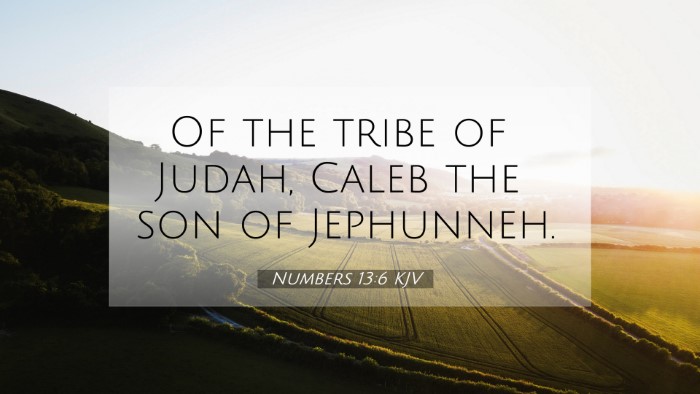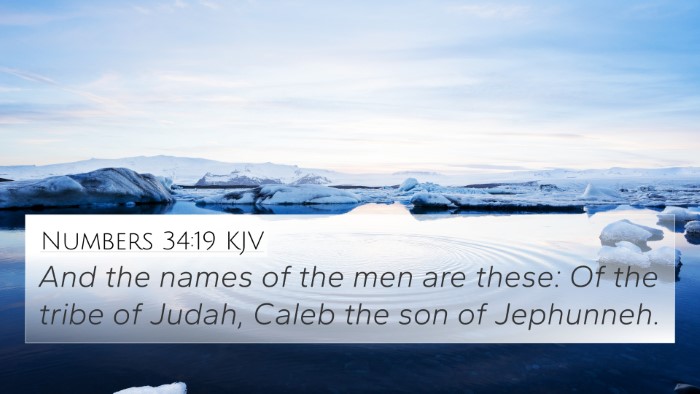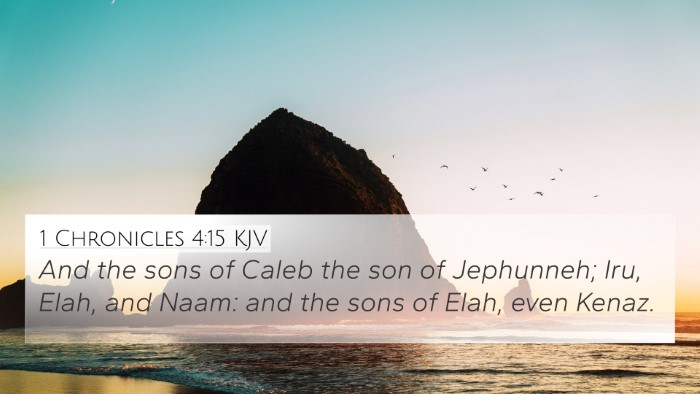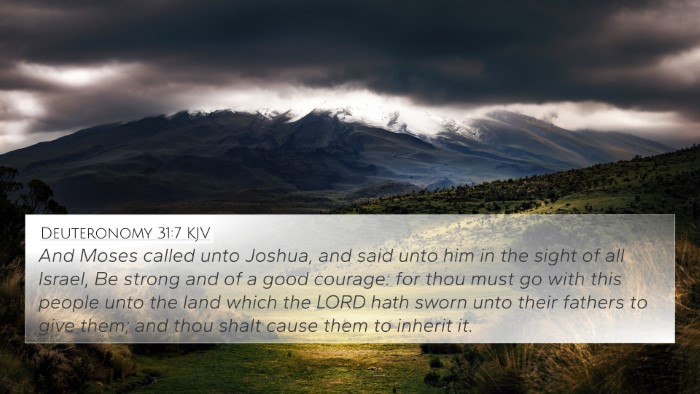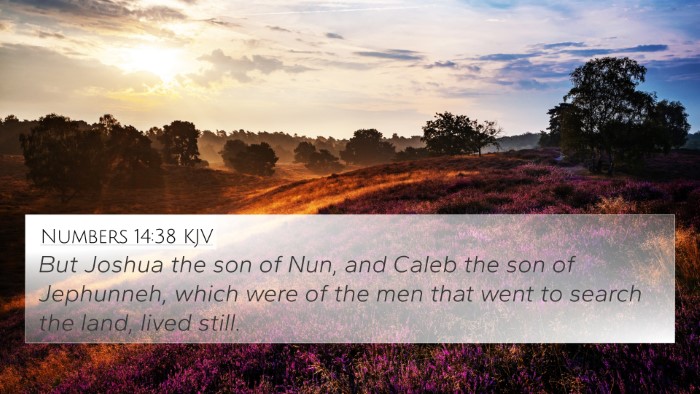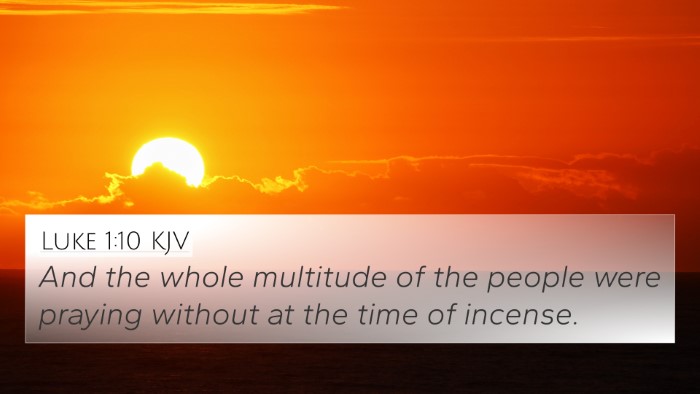Understanding Numbers 13:6
Verse Overview: Numbers 13:6 identifies one of the twelve spies sent by Moses to explore the land of Canaan. The verse states, "Of the tribe of Judah, Caleb the son of Jephunneh." This selection is meaningful within the larger narrative of Israel's journey to the Promised Land.
Significance of Key Elements
- Tribe of Judah: This tribe holds a significant place in Israel's history, being associated with royalty and praised for its leadership qualities. The inclusion of Caleb from this tribe indicates a strong representation of faith and boldness.
- Caleb's Heritage: The mention of Caleb as the son of Jephunneh emphasizes his lineage and background. His character is later seen as one of faithfulness and courage, standing out among the other spies.
Commentary Insights
In analyzing Numbers 13:6, various public domain commentaries highlight several key insights:
- Matthew Henry: Henry emphasizes the importance of Caleb's selection as a representative of faith, noting that he later exemplifies trust in God’s promises despite overwhelming obstacles.
- Albert Barnes: Barnes elaborates on the choice of spies, underlining that Caleb's faith would later serve as a stark contrast to the skepticism exhibited by the other spies. His fearless spirit aligns with the attributes desired in a leader.
- Adam Clarke: Clarke sheds light on Caleb’s character and attributes, describing him as valiant and faithful, which are essential traits for a leader of Israel during this critical time.
Cross-References and Biblical Connections
Numbers 13:6 can be linked to various other verses in scripture that further illuminate its significance. Below are seven cross-references that provide thematic connections and support a comprehensive understanding of this verse:
- Joshua 14:6-14: This passage highlights Caleb’s faithfulness even years later, as he claims his inheritance in the Promised Land, showcasing his unwavering belief in God.
- Hebrews 11:1: The faith chapter draws attention to the nature of faith itself, reinforcing the concept that Caleb exemplified through his actions.
- Numbers 14:24: God specifically commends Caleb for his different spirit and his following of God fully, which further explicates his character in conjunction with leadership.
- Matthew 15:22: This New Testament reference reflects the faith of a Canaanite woman, contrasting the lack of faith seen in the Israelite spies.
- Psalm 78:70-72: These verses discuss God's choice of David from the tribe of Judah, illustrating a thematic connection between leadership in Israel and God’s chosen people.
- Romans 10:17: This verse about faith arising from hearing aligns with Caleb’s story and provides a foundational truth about belief in God’s promises.
- 1 Corinthians 10:11: Here Paul reflects on the lessons learned from Israel’s history, including the example of Caleb and the implications of their faithfulness.
Thematic Connections
This exploration of Numbers 13:6 reveals critical themes relevant for Bible study:
- Faith vs. Fear: The contrasting responses of Caleb against the other ten spies embody the spiritual struggle between faith and fear.
- Leadership Qualities: Caleb's selection serves as a study in the characteristics desirable in a leader: courage, faithfulness, and a heart aligned with God's will.
- God’s Promises: The overarching narrative invites believers to trust in God’s promises, as exemplified by Caleb's faith.
- Divine Favor: Caleb's example illustrates that faithfulness does not go unnoticed by God, inspiring readers to seek God's favor in their own lives.
Conclusion
In summary, Numbers 13:6 serves as a foundational text that unveils the character of Caleb, a model of unwavering faith in God amidst challenges. Through cross-referencing with various biblical passages and commentaries, the relevance of this verse extends beyond its immediate context to a broader understanding of faith, leadership, and God’s promises.
Further Study
For those interested in exploring the deeper meanings and connections between Bible verses, utilizing a Bible concordance or a Bible cross-reference guide can be invaluable resources in studying themes and inter-Biblical dialogue. Engaging in cross-reference Bible study methods allows readers to identify and appreciate the intricate linking of biblical scriptures throughout the text.


